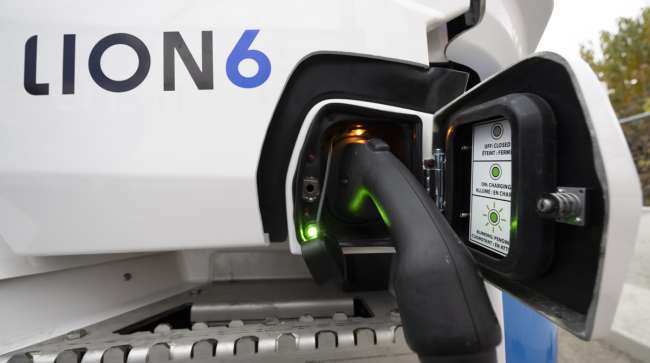Staff Reporter
Lion Electric Wins Court Protection From Creditors

[Stay on top of transportation news: Get TTNews in your inbox.]
Lion Electric obtained protection from its creditors as the embattled battery-electric truck and bus maker’s cash pile continued to dwindle, it said Dec. 19.
Montreal-based Lion sought creditor protection under the Companies' Creditors Arrangement Act, Canada’s version of U.S. Chapter 11 bankruptcy proceedings.
After winning breathing room with its bankers to look for additional funding earlier in December, Lion said it failed to raise any cash and was now in default on debt repayments.
Lion has, however, arranged stopgap funding with its existing lenders — through a debtor-in-possession credit facility — to allow the company to continue operations while in bankruptcy proceedings.
During this time, Lion said it expected to hunt for alternate financial backing or sell the business or individual assets.
On Dec. 1, Lion obtained temporary relief in its fight to stay afloat by extending the repayment deadline on a loan and amending the terms of a revolving credit facility.
RELATED: Lion Electric President Nicolas Brunet Resigns
The maturity date for the loan from Finalta Capital and Caisse de dépôt et placement du Quebec was extended to Dec. 16 from Nov. 30. Suspension of financial covenants under the credit facility with a group of banks including National Bank of Canada and Bank of Montreal were also extended to Dec. 16.
Those deadlines expired without Lion finding funding to replace the existing backing and, as a result, the company expects to file for bankruptcy protection.
The pending sale of Lion’s innovation center in Mirabel, Quebec, to Aeroport de Montreal (ADM) for C$50 million ($35.3 million) — set to conclude by the end of the month — was not enough to meet the company’s short-term liquidity needs.
ADM said Lion seeking bankruptcy protection had no impact on the deal.
Lion’s liquidity needs became more acute despite the company cutting as many costs as possible.
The original equipment manufacturer on Dec. 1 laid off 400 staff and halted production at its Joliet, Ill., bus manufacturing plant. In April, Lion parted with 120 predominantly Canadian employees who worked in overhead and product development. In February around 100 staff were let go, most of them part of the night shift at its Saint-Jerome manufacturing facility.
Lori Heino-Royer of Waabi discusses the latest developments, breakthroughs and key industry partnerships in autonomous trucking. Tune in above or by going to RoadSigns.ttnews.com.
Lion laid off 150 employees, or 10% of its workforce, in November 2023. At the time, Lion said the job cuts would speed its path to profitability.
Prior to seeking protection from its creditors, Lion said its remaining 300 employees would “focus on the company’s bus manufacturing, sales and delivery operations.”
Nothing was said about its battery-electric truck production, and a spokesman declined to comment.
At May’s Advanced Clean Transportation Expo in Las Vegas, Lion revealed the Lion8 Tractor, a Class 8 semi featuring a 6x4 axle configuration with two integrated 2-speed e-axles. The tractor offers a range of up to 275 miles on a single charge.
Lion8 joined a lineup comprising two battery-electric school buses — the LionC and LionD — and its Lion5 and Lion6 medium-duty trucks. Lion5 was unveiled at 2023’s ACT Expo and was the first to use proprietary LionBattery packs.
The company was previously a client of Romeo Power, which U.S.-based Class 8 truck maker Nikola liquidated in July after problems with its key product. Classes 4-6 truck manufacturer Mullen Automotive on Sept. 11 bought Romeo’s battery production assets for $3.5 million.
Want more news? Listen to today's daily briefing below or go here for more info:





